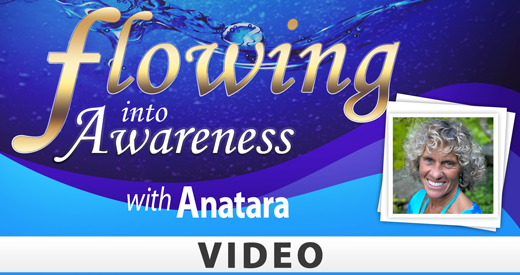| YogaHub |  |
Interview: Megan McDonough ~ Part 2
[post-img]
Continued from Part I of Megan's interview…
Lia: Well, I love that so much, because you do hear so many stories – even the story of the Buddha is, you know, he walked away from his wife and his baby and walked into the distance to figure out what it all means. And I think yes, but what if you don’t want to do that?
MM: What about your wife and kids, dang it? Didn’t they at least get alimony?!
Lia: Yeah! And so it’s important to have as many examples as possible of the people who are both in the world and able to live deliberately.
MM: Yes, because lets face it, it looks very different. I mean, when you even look at the Buddha, he’s out there doing these practices of not eating, etc., etc., so it looks quite different for those of us who are living an average life. And I think what tends to happen, for me anyway, is I glorify – it’s almost like celebrity worship – where you see these spiritual superstars living this romanticized life and you think, you know, I look downright boring compared to them.
But, this is what I choose.
Lia: They need to have a People Magazine for seekers that has the “Spiritual Leaders are Just Like You!” section, with pictures of them walking their dog, or…
MM: A mother breastfeeding a baby and cleaning the house!
[tip-fact] Lia: Exactly! I want to ask you specifically about – and maybe I’m also asking this because of just having listened to Jonathan [Foust] – I’ve read a couple of your articles and I listened to your workshop, and what I relate to in what you’re talking about is an attitude of surrender. But you also seem to be talking about a kind of specific awareness that feels like concentration or focus. So I’d be interested to know how you feel about those two things and how they relate?
MM: That’s exactly what I was asking myself while I was listening to him speak. Because, right before his topic, I had a break. Within these five days, I haven’t really been doing much else other than focusing in on this computer, this conference, moderating – and I had a break and I thought, you know what, I’m going to leave my office and I’m going to go cook dinner. And it was the first dinner I’ve really cooked in five nights. So, I noticed that as I was cooking, I wanted to keep coming back. I wanted to, as the food was cooking, say: “I’m going to run in and check and see if I have any emails; I’m going to check and see what’s going on”. And so I intentionally kept saying, “no, I’m staying here. I’m staying here”.
So when Jonathan was talking I was thinking, oh, that’s exactly what was I was doing while I was cooking dinner – I was refusing to be distracted and I was even consciously thinking as I was cutting up the sweet potatoes, how nourishing they were, how happy I was that I was able to provide for my family, at least tonight, a decent dinner. Because I hadn’t been doing that during the conference. So that was my idea of concentration.
And, it’s funny, my husband – I’ve never heard him be so effusive about my cooking but he just kept saying “this is delicious!” And I can’t help but think that the reason it tasted so good is because I concentrated. Just on doing that task. And I wasn’t distracted with the energy of running into my office. What Jonathan was talking about, how that unfolds to me, is that when I’m chopping up the sweet potatoes…I’m chopping up the sweet potatoes. I’m there. I’m concentrating on that.
And, by the way, it’s not always like that! Let’s not make it all hunky-dory, let’s not make it all beautiful. There are times when I say just slap this sucker together, I’m tired, go have a bowl of cereal! So, let’s get real, you know, it’s not always beautiful.
Lia: I’m always just so interested in this interplay of concentration and surrender. Because I feel that it can be difficult to discern which one is which. I think – and correct me if I’m wrong – but I think that even in your EASE technique, there is this quality of beginning with concentration and then moving to surrender…do you think that’s right?
MM: Well, I did not write the four steps from a Buddhist perspective. So it wasn’t those stages exactly. I just sort of noticed how they flow together in my life. So, for me, I’m not even going to try and line them up with “here are the five steps” or “here are the four steps”. For me, I just had to be fully present and to really see what was going on if I wanted to live deliberately. There’s just no way around that. If you want to show up for your life, you have to show up for your life and be fully present for it. So, that’s the Experience part [of the EASE technique]. And the Awareness would be that broader perspective that Jonathan was talking about – how else can we expand our awareness to take in things that maybe were invisible to us before?
[b-quote]
I guess where we differ is that my last two steps are to Self-reflect about how you want to show up in this world, then to Elect to actually follow through on that showing up, to choose it.
So, for me, the surrender is that when you do choose how you want to be in the world, you realize you may have some pre-conceived ideas that need to be released. For example, if you choose to be more patient, if that’s one of the values that you’re trying to work on in your life, and your 16 year-old son comes home drunk, you may have to surrender your idea of what you think patience looks like or should look like. That’s the surrender for me. All of these terms that we name, we have to intimately know them and say, okay, I’m going to surrender the belief that patience looks like this.
Lia: That’s such a great point, because I feel sometimes that it’s so easy, if you’re spiritually-minded, to think that peace, or inner-peace, or serenity or any of those things looks, as you’re saying, a certain way. And it can then so easily be translated into something that is passive or apathetic because you’re not exerting exactly the kind of consciousness that you’re talking about.
MM: That’s it, exactly. That’s my experience, as well – that the concept can either be a liberation, as you really explore it and what it means…or it can be a trap.
Lia: Right. Well, it’s so frustrating because I want it to be – you know, 1, 2, 3. Steps 1, 2, 3, exactly like this, every time, just do it like this. And it’s just not. It just is not that way. It’s always changing.
MM: Yeah, what a mean little trick God’s played on us!
Lia: Exactly! So, you talked about how you were working in the corporate world and you made this decision, to live your life more deliberately…can you give me the nutshell version of what’s happened since then and how your life has changed?
MM: Well, when I left the corporate world I started a business with…nothing. I mean, I really wasn’t even sure what I was going to do, but I knew what I was doing wasn’t serving me. So, what’s happened in the last ten years is I’ve written the two books, and I’ve just tried to create a life where I’m walking the talk. What it looks like in everyday life is: I do marketing consulting mainly in the wellness arena, I write books and articles about living deliberately, and do trainings and teachings around that. And that’s been my unfolding work for the last ten years.
Lia: And how about your inner life?
MM: There wasn’t a big “aha” for me…what there is, is this idea of getting more and more attuned to a subtleness in my being that I’m able to read a lot more cleanly, with a lot less drama and angst. So, I think that I’m living a lot more peacefully and moving with the flow. If you ask my husband or my children, maybe they wouldn’t see that, but that’s what I feel!
Lia: I know how that goes!
MM: So it’s not that, oh, I had this big epiphany…personally I just feel that walking each step just brings me closer to myself. Period. I can leave it at that.
Lia: That’s perfect.





